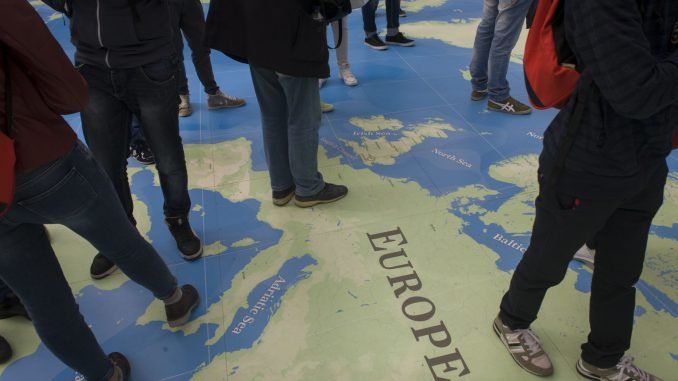
This is not a quarrel. Nor is it just one of those frequent moments in the Franco-German relationship when everything seizes up because the president has not yet adapted to the new chancellor or vice versa. No, the reason nothing works well between Paris and Berlin today is that Europe and the world have changed so much and so quickly that the two leading European powers have to reinvent their policies, economies, international priorities and the orientation they wish to give to the Union. They have to do this all at once, Bernard Guetta, Member of the European Parliament from France writes.
For Germany, the times are the most difficult because everything was based until now on the low price of Russian energy, the American umbrella and exports to China. One has dried up, and the other is closing; the third is shrinking. Such is the panic at the chancellery that Germany prefers to look for salvation in its financial resources rather than in the quest for new European agreements. Germany is dealing with the most pressing issues, negotiating gas contracts with new suppliers on its own, releasing 200 billion for its industries and buying gazillions of arms from the United States rather than placing orders in Europe because a bird in the hand is better than two in the bush.
For France, this is unfair competition and a loss of income for its arms industries. France feels all the more betrayed as it had been repeating since De Gaulle that the Union should have a common defence and industrial policies, aiming at what Emmanuel Macron called “strategic autonomy”, and at the very moment when this national intuition is proving to be true, Germany is arming itself in Washington and boosting its industries with budgetary subsidies rather than working to build a pan-European industry.
It is so disappointing and, above all, so absurd that many are coming to see this as a turning point for Germany, which they suspect of wanting to abandon the Union in favour of a zone of economic and political influence in the East. This could be, they hear in France and elsewhere, the end of the “couple”, a new strategic deal that would leave the French at the margins of a continent refocused on Berlin. The analysis is as politically disturbing as it is intellectually appealing, but…
But Poland will not be aspiring to a tête-à-tête with Germany any time soon. German financial reserves, despite everything, are not inexhaustible. After Ukraine’s victory, the French and Germans will aspire to base the continent’s stability on a new relationship with post-Putin Russia. In other words, it is not German panic that needs to be theorised, but the real Franco-German convergences that need to be cultivated.
Because the state of the world has proved it right, it is up to France to do this, but how?
First of all, it must renounce all ambiguity and solemnly declare to its twenty-six partners that the common defence can only be part of the Atlantic Alliance, of which it must be the European pillar. This is essential because there will be no Europe of Defence without this, and the Union will break up between security policies that will control the rest.
At the same time, France must postpone the great ideas of institutional reform of the Union, favour the Europe of projects and present, not only to Germany but to the whole of the Union, concrete, detailed and quantified proposals for common policies in energy, armaments and industry: to do what it had done in 1951 with the ECSC, the European Coal and Steel Community. Because France invented European unity after the war, it is up to France to reinvent it today.


Be the first to comment